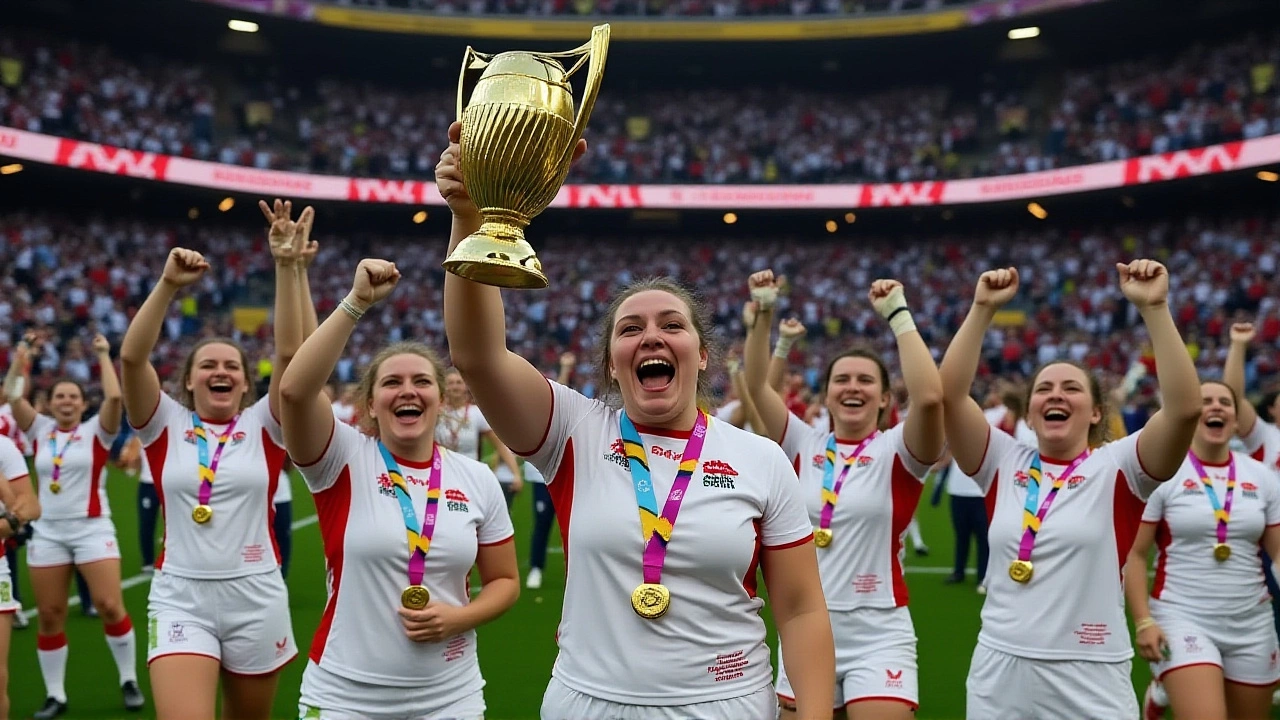Record‑Breaking Numbers
The England‑France semi‑final at the 2025 Women’s Rugby World Cup turned out to be a watershed moment for British sport broadcasting. BBC Sport viewership record was shattered as the match pulled an average of 4.2 million live TV viewers, with the peak audience hitting 5.1 million during the final minutes. This eclipses the previous high for a women's rugby fixture – 3.6 million who watched the 2021 final between England and New Zealand.
Streaming platforms added another layer of reach. BBC iPlayer logged 1.8 million concurrent streams, while the BBC Sport app recorded 2.3 million total plays across the day. Social media buzz was equally strong: the hashtag #ENGFRA2025 trended in the UK for nine hours, generating over 150 000 tweets and 2 million views on the official BBC highlights clip within the first 24 hours.
Industry insiders attribute the surge to a combination of factors. The rivalry between England and France has a storied history, and both teams entered the semi‑final unbeaten, promising high‑stakes drama. Moreover, the BBC’s promotional push – a series of prime‑time trailers, behind‑the‑scenes features on the players, and a partnership with schools to air rugby clinics – broadened the appeal beyond traditional fans.
BBC Director of Sport, Jonathan Kelley, praised the audience response: “We’ve seen a genuine shift in public appetite for women’s sport. Hitting over five million viewers for a single match is a clear signal that the market is ready for more investment and prime‑time slots for women’s competitions.” The England captain, Marlie Packer, echoed the sentiment, noting that the visibility gives younger girls a tangible role model.
Key statistics from the broadcast:
- Average live TV audience: 4.2 million
- Peak TV audience: 5.1 million
- BBC iPlayer concurrent streams: 1.8 million
- Total digital plays (BBC Sport app & website): 2.3 million
- Social media impressions (Twitter, Instagram, TikTok): 12 million
- Demographic breakdown: 58% male, 42% female; 34% under 25
These figures have already sparked discussion among policymakers and sponsors. The UK Department for Digital, Culture, Media & Sport (DCMS) cited the data in a recent briefing, urging broadcasters to allocate more prime‑time slots to women’s events. Several corporate partners, including a major sportswear brand, announced plans to increase funding for grassroots women’s rugby programs, citing the broadcast’s success as proof of commercial viability.
Analysts also point to the ripple effect on future tournaments. The upcoming 2027 Women’s Rugby World Cup, set to be co‑hosted by the USA and Canada, is expected to negotiate larger broadcast deals, leveraging the UK’s record as a benchmark. Meanwhile, the England‑France clash has become a case study in how strategic promotion, competitive storylines, and accessible streaming can together lift a sport’s profile dramatically.
